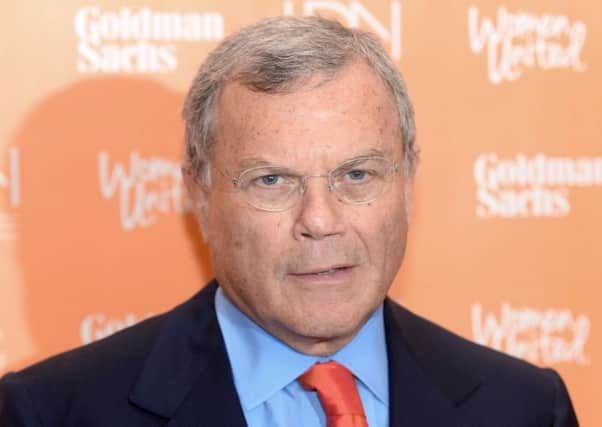WPP sees signs of '˜Brexit anxiety' as growth slows
This article contains affiliate links. We may earn a small commission on items purchased through this article, but that does not affect our editorial judgement.


The firm, run by Sir Martin Sorrell, said in its third-quarter trading update that like-for-like growth in the UK came in at 2.1 per cent, compared with 3.5 per cent in the previous quarter.
WPP said: “All parts of the group’s businesses, except data investment management and public relations and public affairs, softened. Perhaps, the first signs of Brexit anxiety.”
Advertisement
Hide AdAdvertisement
Hide AdBut WPP also flagged the impact of a weak pound, which boosted overall revenue by 23.4 per cent to £3.6 billion, with North America and continental Europe driving growth. On a constant currency basis, overall sales grew 7.6 per cent.
Speaking to BBC Radio 4, Sorrell said: “I always think of a country’s currency as its stock price, so when the currency falls it is rather like the country’s stock price falling.”
Sorrell, a prominent proponent of remaining in the EU, again reiterated that WPP will place a greater emphasis on growth in western continental Europe, in particular Germany, France, Italy and Spain.
To this end, WPP announced in September that it is investing in French media firm Les Nouvelles Editions Independantes, which owns holdings in newspaper Le Monde and Vice France.
In its outlook, WPP highlighted the “diplomatic warfare and long-term negotiation around Brexit” and “right-wing and left-wing populism” around the US presidential election as reasons for caution.